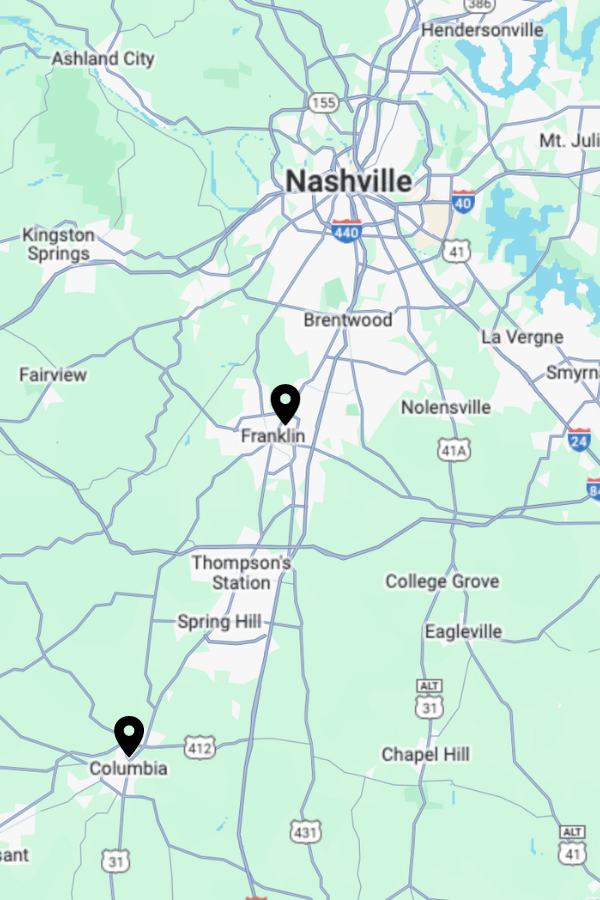Many people who struggle with drug and alcohol addiction may feel like sobriety is an impossible goal. Or, that it’s just too hard to muster up the motivation to quit. Motivational Interviewing (MI) can be helpful to those struggling with addiction and mental health issues, by cultivating the ambition to get sober and begin a journey to recovery. This page will discuss more about MI, its benefits and how to find motivational interviewing in TN.
Apex Recovery is a drug rehab in Tennessee that offers Motivational Interviewing as part of our drug treatment programs in Tennessee. To learn more about Motivational Interviewing with Apex Recovery, contact our admissions team at (877) 881-2689.
What is Motivational Interviewing (MI)?
Motivational interviewing (MI) is a type of addiction therapy used to address substance use disorders (SUD) in patients by strengthening one’s motivation and commitment to a particular goal, such as sobriety. When battling an addiction, one of the most difficult hurdles to overcome is a lack of motivation. Patients may feel they are not able to quit and therefore are ambivalent about his or her sobriety.1
Motivational Interviewing Steps & Processes
The founders of motivational interviewing, Dr. William Miller and Dr. Stephen Rollnick, describes motivational interviewing as a therapeutic tool intended to be used in addition to other forms of therapy or addiction treatment. MI is meant to inspire change in clients who may otherwise feel reluctant to do so.2 Dr. Miller and Rollnick formulated 4 client-centered processes to help patients identify their goals and begin to work towards them. They are as follows:2
- Engaging – Getting to know the client and establishing a trusting and respectful alliance.
- Focusing – Coming to a shared idea about the main focus of a client’s recovery.
- Evoking – Bringing out the client’s own arguments for change.
- Planning – The client is willing and able to envision change and how they will manifest that change.

Free Addiction Assessment
Schedule a free, confidential assessment with a licensed clinician. Apex Recovery can check your insurance coverage levels for drug and alcohol addiction, and mental health treatment.
Does Insurance Cover Motivational Interviewing in Tennessee?
Yes, typically health insurance providers in Tennessee will cover Motivational Interviewing when it is used as part of your rehab treatment plan. The level of coverage will depend on a number of factors, such as, length of treatment, insurance plan and specific therapist. It is best to confirm coverage with your insurance provider and connect with an admissions specialist to verify your level of coverage.
Alternatively, you can use our insurance verification tool below to verify your insurance coverage for Motivational Interviewing therapy.
- Please complete and send the form below.
- One of our staff members will contact your insurer to check your coverage.
- We will contact you promptly with the results and to discuss the next steps.
Insurance Verification
"*" indicates required fields
How to Find Motivation Interviewing for Substance Use Near Me in TN
If you or a loved one is in need of Motivational Interviewing for addiction in TN, you have options. Apex Recovery offers MI as part of a comprehensive treatment program at our facilities in Franklin and Columbia, TN. Contact us today at (877)-881-2689 for more information about our licensed and experienced therapist. Take the first step toward your recovery.

Motivational Interviewing in Tennessee
Apex Recovery has two rehab facilities in Tennessee which offer Motivational Interviewing services for those struggling with mental health and substance use issues. These centers provide a tranquil backdrop for recovery. The Franklin center is situated at 4601 Carothers Pkwy STE 250A, Franklin, TN 37067, while the Columbia facility can be found at 2710 Trotwood Ave Suite A, Columbia, TN 38401. They offer a range of programs in welcoming, supportive environments.
Apex Recovery Franklin
4601 Carothers Pkwy STE 250A
Franklin, TN 37067
Apex Recovery Columbia
2710 Trotwood Ave STE A & B
Columbia, TN 38401
Benefits of Motivational Interviewing for Addiction
Motivational interviewing can offer several benefits for patients struggling with addiction, including:3
- Increased treatment program retention
- Better individual engagement during treatment.
- A higher probability of success in terms of alcohol consumption and alcohol misuse.
- Effectiveness even as a brief intervention, which can also be cost effective.
- Adaptability to a variety of settings.
- Mobilizing an individual’s own resources for change.
Effectiveness of Motivational Interviewing for Substance Abuse
Recent studies indicate evidence supporting the effectiveness of MI.4 For example, in alcohol use, motivational interviewing has a positive effect on the frequency and volume in the short term (less than 4 months.).4,5 When combined with other evidence-based therapies, such as Cognitive Behavioral Therapy (CBT), MI may help people with Substance Use Disorders (SUDs) achieve long-term behavior changes.5 Research also suggests that MI works for people with co occurring disorders.5
Sources
- Providers Clinical Support System. (2017). Motivational Interviewing: Talking with Someone Struggling with Opioid Addiction. Retrieved on August 15, 2019, from: https://pcssnow.org/courses/motivational-interviewing-talking-with-someone-struggling-with-oud/
- Miller, W. R. (2018). Listening well: The art of empathic understanding. Eugene, OR: Wipf & Stock. Miller, W. R., & Rollnick, S. (2013). Motivational interviewing: Helping people change (3rd ed.). New York: Guilford Press.
- Substance Abuse and Mental Health Services Administration. (2019). Enhancing Motivation for Change in Substance Use Disorder Treatment.
- Frost H, Campbell P, Maxwell M, et al. (2018). Effectiveness of Motivational Interviewing on adult behaviour change in health and social care settings: A systematic review of reviews. PLoS One, 13(10):e0204890.
- Substance Abuse and Mental Health Services Administration. (2021). Using Motivational Interviewing in Substance Use Disorder Treatment.
